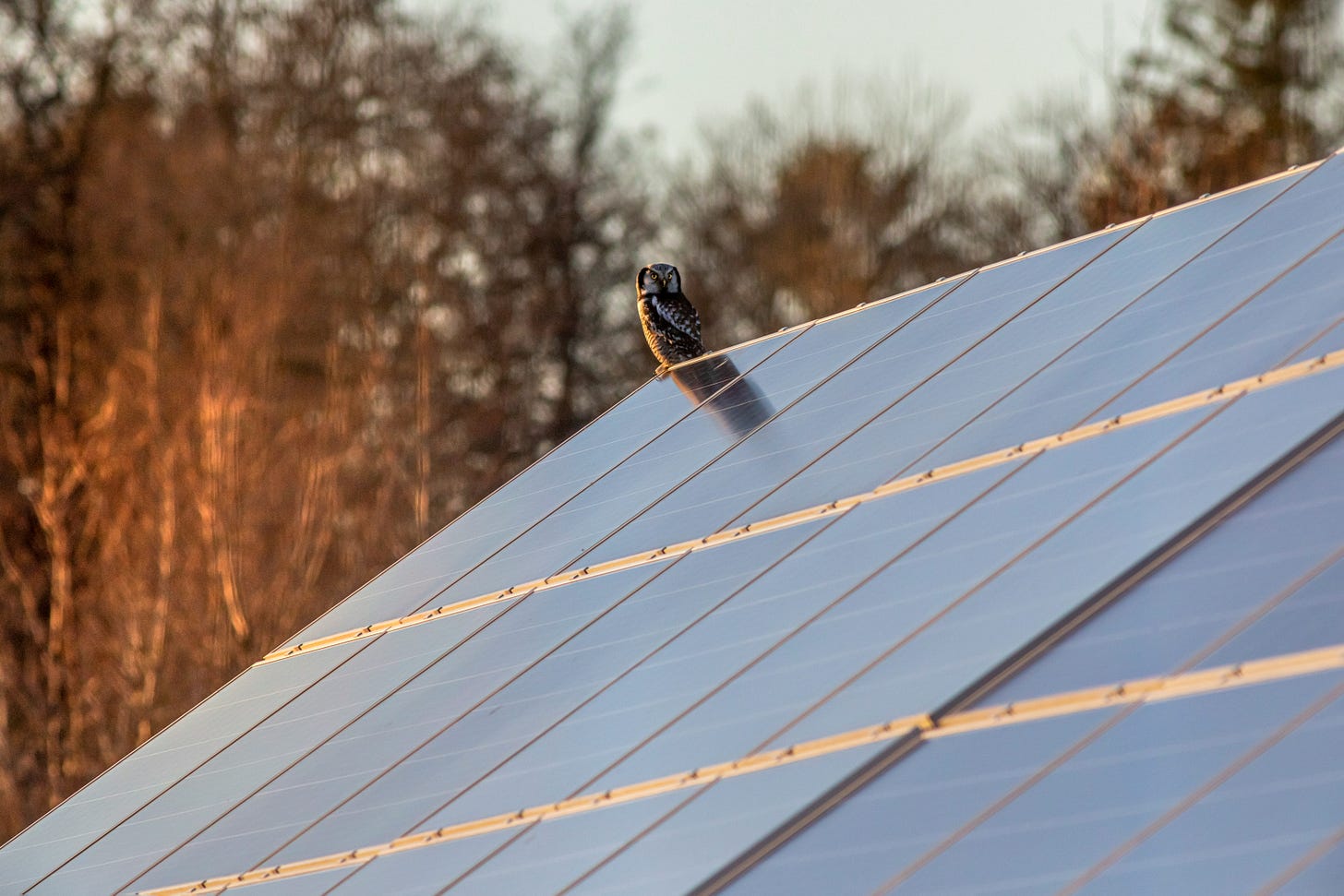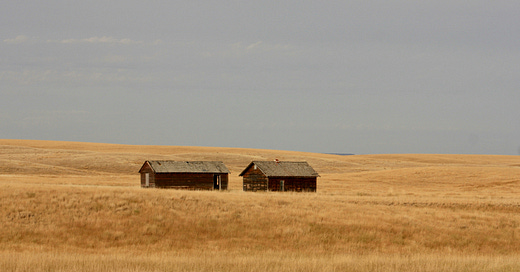A Complicated Relationship with Competence
It's never too late to claim our own competence, no matter what came before us.
When my daughters were little, my plan to read them the longer books I read as a child got derailed very quickly. Even if I managed to get myself sitting down, I would find that I could not read some of my favorite books out loud at all because of the emotions and trauma tied to their memories. Some I discovered, I could no longer enjoy or agree with. I gave up after starting and immediately stopping the book, “Little House in the Big Wood.” The first Laura Ingalls Wilder book was supposed to be an obvious choice to read out loud. I read the first couple chapters, got violently ill, and was never able to return to it.
The story of willingly giving up family and community in order to try and survive in the middle of nowhere hit too close to home. I read about the mother’s family, their closeness, their celebrations, and their mutual assistance, and thought, “They are going to give all that up and almost die repeatedly in the middle of nowhere because their father doesn’t want to be around people. Are you kidding me?” With the perspective of my life, I could no longer let romanticism obscure the way that people suffered, sometimes died horribly, and in some cases went completely insane, looking for open skies and independence that never looked particularly independent to me.

I have said before that my parents were terrifyingly competent people. I still maintain that percentagewise, very few other people have been able to do what they did with no experience. No matter how much people want to cosplay homesteading, the majority of people do not have the capacity to buy and set up a property, let alone to grow food sufficient to meet their needs, to become independent of the power grid and services and all the other things we tend to take for granted. With all of their resources, my parents certainly didn’t get there, no matter how hard they tried.
I often thought about the connections we still had to other people as I sat in the middle of nowhere. We were so dependent on the people repairing the phone lines. The people delivering the mail. The people maintaining the power grid. Even alone in my room, I would think about the paper in the shelves of books. The thoughts on the pages. I knew that, simply to stay sane, I was dependent on the existence and work of people who lived around the world and decades if not hundreds or even thousands of years before me. I depended on stories and mythologies that people told long ago, and that even more people had recorded into writing.
To me, my parents were delusional to think they were independent and apart from society. They would often claim they weren’t dependent on others. Self made as the myth goes. I could see that they were able to believe that about themselves because they truly were exceptionally competent and capable. I realized in retrospect that most people can’t just learn to perfectly pour concrete foundations and build on them from a couple of books. I still heard in the stories they related and the things they said that they needed other people. To stay sane if nothing else. I saw that they needed other people to work with, to buy food from. Unfortunately, I also saw their competence, their ability to live apart as much as they could manage, create a nightmare, a life that felt completely unlivable at times. A life that created in me a complicated relationship with competence.
During the pandemic, I heard and saw a lot of people claim that they didn't need to be concerned about what impact their actions had on others because they were independent entities, individually taking care of themselves.
I, of course, had a skeptical relationship with this idea because I had seen my parents, incredibly competent, capable people, try their hardest to be independent of society, and ultimately fail. Even if they had managed to install solar and grow enough food for their needs, it would have consumed their whole life to just survive, let alone live well. Let alone move into the future. Even apart from survival, they still depended on the creativity of others. On other people's research. On other people's writing. On other people's art.

I’m going to confess that I still find the idea that we are simply individual to be delusional. We are individuals, but also we are intricately and intimately interdependent on each other. Maybe some people think that because they can order dinner, have it dropped at their door and never have to interact with another human being that they are independent. The people I saw most inclined to say that they didn't depend on anyone else were also the people who would get most offended if their trash didn't get picked up on the allotted day. Having grown up burning our own trash and grading our own road, I have no romanticism about the idea of rugged, individual independence. It takes millions of different kinds of lives to create a society where you can order the exact meal that you want, have it delivered to your doorstep, and never have to interact with another human being. I really believe that failing to recognize that is destructive. It seems to lead to people who state that they don't depend on anyone else and therefore do not need to accommodate anyone else.
I have feelings about this. Obviously.
When I entered the world from my isolation, I was beyond paranoid. I didn't understand how people could trust one another enough to drive through a green light, let alone keep their money in a bank. If you expect your roads to be drivable, if you expect your trash to get picked up, if you expect the water that comes out of your taps to be drinkable, you depend on other people. My need for connection and my understanding of interdependence went to war with the years my parents had raised me apart. I did not did not want to be like my parents, but I was also unavoidably their daughter. I did not want to live apart from people, but I also wasn’t particularly good at living with them.
Life is a pendulum swing. For the longest while, in reaction to my parents, in my desire to be unlike them, I did want to have any claim to my own capacity and capabilities. I was so successful at this that towards the end of my freshman year of college, I was thought to be a bit slow. So much so that when the boy who would eventually become my husband heard me say I outscored him on the SATs, he exclaimed, “Wait? What? You’re actually smart?” I could not stop laughing.
I owe my life to so many people. I owe my life to everything and everyone that came before me. At the same time, I have had to come to peace with the capacity that I do have. I have needed to learn to be in charge of my life. I have needed to learn to take full responsibility for what happens to my children, to my family. After my MDMA trial, as I have gone through the process of rebuilding my brain, I had to come to terms with specific blocks in my brain, to try to untangle my own competence from my history while still acknowledging my interdependence.
In building up our life this last year after my treatment and recognizing that we needed to make changes and grow forward, we've had to do the thing that I find specifically, impossibly challenging. Plan for a future. There is such an appeal to planning for the end of the world, something final about it. It is much harder to plan for an uncertain future. As I have said, I always end up understanding my parents better as I continue to raise my children.
And so, I kept running into these blocks in my brain. I kept feeling like I couldn't move forward. Like I didn't know what to do. A very similar feeling to the feeling I had when I graduated college. I don’t think it’s a unique feeling. I think many of us end up needing to untangle our futures from the ones our parents imagined for us. In the face of not knowing, I realized I needed to free up my brain from habits of helplessness as much as the years and traumas that created them.
With the practice of IFS and the space created by the MDMA trials, I had to look critically at my own ideas about capacity and competence. I had to identify the places in my brain where my beliefs about what I could do with a healed life were getting stuck. I could feel I had parts still carrying the burdens of my life with my parents. Not the big incidents, but the quiet, persistent years where I developed pathways that needed to change direction. In IFS, the parts need to be healed, but healing happens not just through repairing and integrating. Healing is also a matter of relieving burdens the parts carry from past events. A burden removed in IFS therapy lifts the emotions and stories that that either we developed under stress or were given to us by other people. As I asked myself where I was getting stuck, I ended up standing on my parents’ property outside the house I helped them build. The house I barely remember living in because the years I spent there progressed under the pall of my PTSD. I didn’t know why when I first saw it, so I could only wait for a while. Fortunately, I have gotten very good at waiting.



